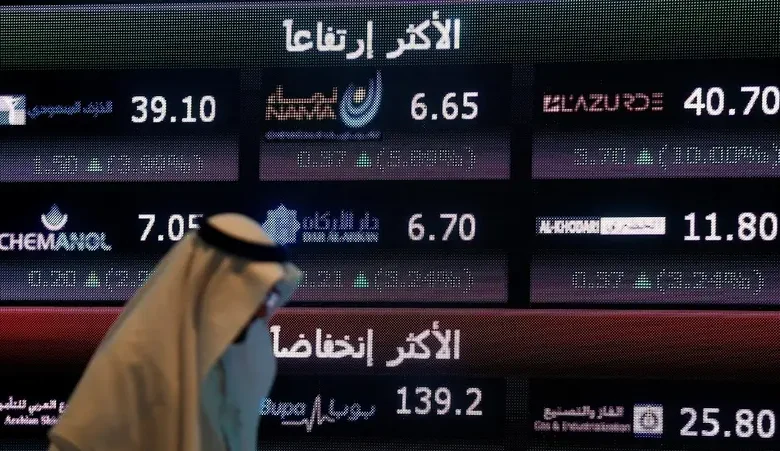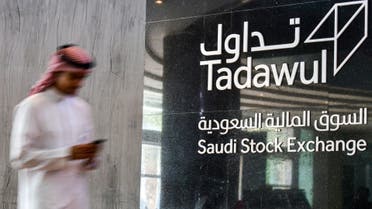How to invest in Saudi Arabia stock market – all you need to know

One of the leading emerging market exchanges globally, the stock markets in Saudi Arabia offer unique opportunities for investors seeking to grow their capital in the Middle East.
There are several ways one can invest in the stock markets in the country and increase their wealth over the years of residency – Equities, Sukuk & Bonds, Exchange-Traded Funds (ETFs), Real Estate Investment Trusts (REITs), Close-End Investment Funds (CEFs) and Derivatives.
How to become an investor
Before entering the stock market in Saudi Arabia and making any investment decisions, make sure that you are fully aware of the risks and potential returns from investing along with clearly knowing the criteria for qualifying to trade in these markets.
Saudi Exchange
The 9th largest stock market among the 67members of the World Federation of Exchanges, the Saudi Exchange is owned by the Saudi Tadawul Group. It is authorized by the Kingdom of Saudi Arabia to act as the countries exchange, listing and trading securities.
The Saudi Exchange mainly carries out listing and trading in securities, along with deposits, transfers, clearing and settlements.
Eligibility
In order to trade on the Saudi Exchange, investors must be Saudi or GCC nationals or registered Saudi residents. An investor must visit a member firm of the Exchange to open an investment portfolio.
The member firm will verify the investor’s eligibility for opening a portfolio based on the conditions set out by the Securities Depository Center Company also known as Edaa.
The investors eligible for the stock exchange include natural persons, joint stock and limited liability companies, authorized persons, charitable and social institutions and associations, endowments, licensed mutual funds, public institutions and government funds.
Required documents
Saudi, GCC nationals and Saudi Arabian residents who meet the eligibility criteria must provide identification documents to access the depository and settlement system – a copy of the identification card or family card for Saudi and GCC nationals and a copy of a valid residency license card (Iqama) and the passport for non-GCC nations or registered Saudi residents.
Companies that intend to register on the Saudi Exchange are required to submit a copy of the commercial register, the company’s articles of association, a copy of the board of directors’ resolution approving of an investment portfolio for the company and copies of identification cards of the members of the board of directors.

For all authorized persons, copies of the commercial register, license and a letter of engagement in business must be submitted to the Saudi Exchange. An authorized person may then make buy/sell decisions for its clients without referring to the account owner based on their agreed terms.
International Investors
International investors have direct access to the Saudi capital market through the country’s Qualified Foreign Investor (QFI) program. The program was introduced in 2015 and later amended in June 2019 to ease registration requirements and expand investor range.
To qualify for a foreign investor one must complete a QFI details forms, provide a copy of certificate of incorporation or an equivalent documents, evidence of regulatory status and copy of its most recent annual report and accounts, audited financial statements and any details of suspension of any license or permission by a regulator. A foreign investor must also provide a list of the QFI’s affiliates and disclose investments in listed companies.
An international investor must not own 10 percent or more of the shares of any issuer and is not allowed to own more than 49 percent of shares in aggregate except for foreign strategic investors. A foreign strategic investor is a legal entity that aims to own a direct percentage of a listed company’s shares for two years or more.
Those eligible for international investors include banks, brokerages and securities firms, insurance companies, investment funds and government and government-related entities.
All foreign investors must be licensed or subject to regulatory oversight. Barring government-related entities, all applicants must have assets under managements of at least $500 million.
Investing in Nomu – Saudi Arabia’s parallel market
Nomu is an alternative platform of the Saudi Exchange for companies go public. The exchange platform has comparatively lower requirements and as a result its market is limited to qualified investors who meet the set criteria.
To be designated as a qualified investor, one must meet at least one of the following criteria.
1. Capital Market Institutions trading on their own account.
2. An authorized person making decisions on behalf of the client concerning the acceptance of an offer and investment in Nomu without obtaining prior approval from the client.
3. Saudi Arabia’s government and any related bodies, supranational authority recognized by the Exchange and any other stock exchange recognized by Edaa.
4. Government-owned companies either directly or through a portfolio managed by an authorized person.
5. Companies and funds established in a GCC member state.
6. Investment Funds.
7. Non-resident foreigners permitted to invest in Nomu and who meet the requirements outlined in the guidance note for the investment of non-resident foreigners in the parallel market.
8. Qualified foreign financial institutions.
9. Any other person who is legally allowed to open an investment account in Saudi Arabia and an account at Edaa.










